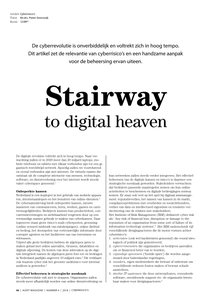Online support communities are gaining attention among child-attracted persons (CAPs). Though research has largely focused on the negative consequences these environments create for potential offending, they may also provide a beneficial alternative to more formal treatment settings. To assess the utility for clinical and therapeutic purposes, this analysis focused on subcultural dynamics to examine self-reported wellbeing outcomes of participation in a Dutch forum for CAPs. A total of 15 semi-structured interviews were conducted with moderators, members and mental health professionals involved in the community. Thematic analyses demonstrated that by means of informal social control, bonds of trust and social relational education, the network aims to regulate the behavior and enhance the wellbeing of its marginalized participants. Key outcomes include a decreased sense of loneliness and better coping with stigma, to the point that participants experience less suicidal thoughts. Association with prosocial peers also helps to set moral boundaries regarding behavior towards children, although we cannot fully rule out potential adverse influences. Online support networks offer a stepping stone to professional care that fits individual needs of CAPs, while also providing an informal environment that overcomes limitations of physical therapy and that extents principles of existing prevention and desistance approaches. Gepubliceerd door uitgever Sage: Bekkers, L. M. J., Leukfeldt, E. R., & Holt, T. J. (2024). Online Communities for Child-Attracted Persons as Informal Mental Health Care: Exploring Self-Reported Wellbeing Outcomes. Sexual Abuse, 36(2), 158-184. https://doi.org/10.1177/10790632231154882
DOCUMENT
De digitale revolutie voltrekt zich in hoog tempo. Naar verwachting zullen er in 2020 meer dan 20 miljard laptops, mobiele telefoons en tablets met elkaar verbonden zijn tot een gigantisch wereldwijd netwerk. Spoedig zullen we voortdurend en overal verbonden zijn met internet. De virtuele ruimte die ontstaat uit de complexe interactie van mensen, technologie, software, en dienstverlening over het internet wordt steeds vaker cyberspace genoemd
DOCUMENT

In dit onderzoek in het kader van de kenniskring ‘Surfen naar Zin’ van het lectoraat Praktische Theologie van de Fontys Hogeschool Theologie Levensbeschouwing in samenwerking met de Fontys Pabo’s is een verkenning verricht naar doeloriëntaties van Pabo-studenten. De ‘jeugd van tegenwoordig’ waar Pabo-studenten nog recentelijk deel van uitmaakten heeft een andere oriëntatie op religie en levensbeschouwelijkheid dan zo’n dertig jaar geleden. Op basis van de theoretische concepten over religieus leren van Grimmitt is onderzocht welke doelen studenten voor zichzelf en het levensbeschouwelijke onderwijs hanteren. Immers oriëntaties van studenten zijn beïnvloedend voor de wijze waarop ze levensbeschouwing aan basisschoolkinderen onderwijzen. Inzicht in de voorkeursdoeloriëntatie zou kunnen leiden tot verhoging van de expertise en innovatie van het huidige Pabo curriculum op dit gebied. De volgende indeling van doeloriëntaties is gehanteerd: het monoreligieuze model - learning in religion - , het multireligieuze model - learning about religion - en het interreligieuze model - learning from religion -. Met behulp van een schriftelijke vragenlijst zijn 120 studenten bevraagd op hun oriëntaties. Het blijkt dat de onderzoeksgroep een voorkeur heeft voor het model van ‘learning about religion’ In hoeverre dit beïnvloed wordt door persoonskenmerken, culturele diversiteit, relaties tussen religies, vindplaatsen, perspectieven en alternatieven in religieus beleven is niet significant gebleken. Naar aanleiding van dit onderzoek wordt gepleit voor een aanpassing van het curriculum van de Pabo in de richting van het ‘learning about religion’ model en voor verder onderzoek naar de doeloriëntatie van leerkrachten, ouders en kinderen in de basisschool.
DOCUMENT
